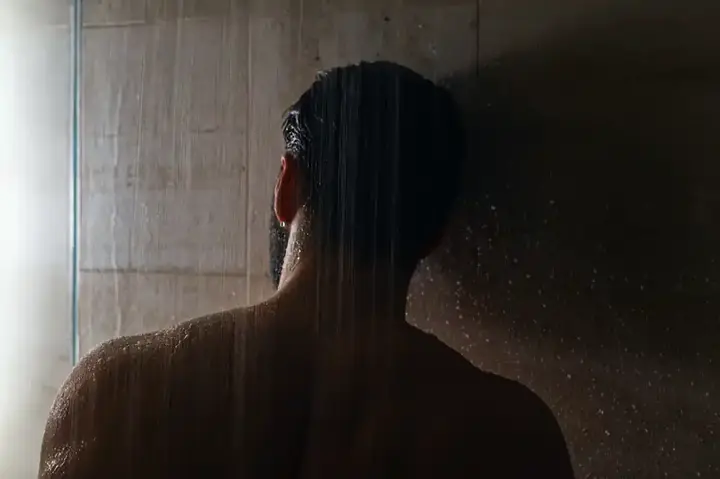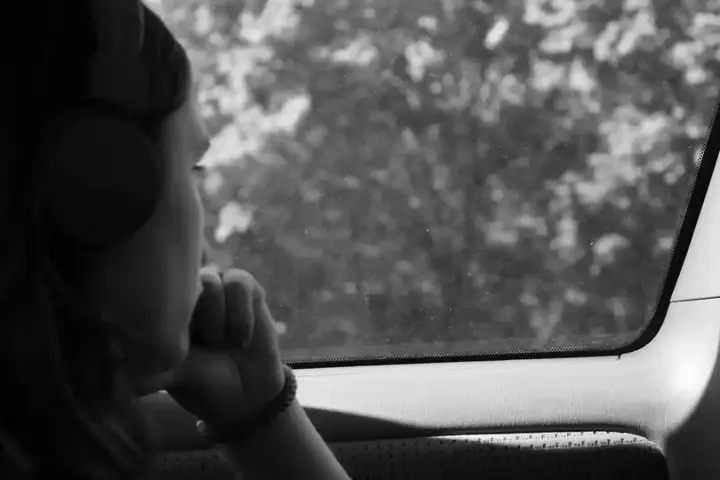The Power of the Secret Shower: Unleash Your Most Creative Ideas

You're stuck in a problem and don't seem to be able to find a solution to it, so you decided to take a shower to give yourself a break. While you're showering in the bathroom, a surprising thought comes to your mind that might work!
Show key points
- Many people experience creative breakthroughs, such as new ideas or solutions, while taking a shower or engaging in similar relaxing activities.
- The creative process often begins with gathering information and then entering an incubation phase where the brain unconsciously forms connections.
- A relaxed and wandering mind is more likely to generate innovative ideas, as it allows different thoughts to intersect freely.
- ADVERTISEMENT
- Scientific studies reveal that individuals who daydream during low-demand tasks perform better on creativity tests compared to those under cognitive strain.
- Showers serve as mental sanctuaries that disconnect us from external distractions and grant our brains freedom to think creatively.
- The release of dopamine and alpha brain waves during relaxation activities like bathing enhances our mood and cognitive flexibility, boosting creativity.
- Engaging in other relaxing activities like meditation, hiking, or drawing can be equally effective in facilitating creative thought and solving complex problems.
Sound familiar?
Not all great ideas arise after a group of scientists breaks their brains for hours on end, as some of these ideas appear in bathtubs. Archimedes came up with the law of hydrostatic pressure (also known as the Archimedes principle) during bathing.
But what explains the power of these shower submersibles? Why does the act of ordinary bathing provoke creativity juice in our brains?
How the brain comes up with ideas

There are no specific rules for creativity, but artists and thinkers often define a similar process. Let's say you have a college essay to work on. You can start by learning about the material and looking at the available data. By doing so, you enter the preparation phase, where you group relevant information together. The next step is the stage where your brain embraces the idea, soaks it, chews it, and thinks about it. Your brain makes connections between the information you've collected.
Recommend
All of this happens while you don't consciously think about it, perhaps while you're doing household chores. The moment all the right points connect to each other, inspiration comes. The moment of your discovery takes you to the production stage, where you can write down and realize your ideas.
The essence of the creative process may vary across the creative spectrum, from writing a novel to investigating a scientific discovery to a wide range of creations, but the basic principles remain the same across the spectrum.
A relaxed brain is a productive brain

When your brain wanders through its thoughts, the brain is free to function in an uncontrolled way. The relational cortex of the brain actively establishes connections between different thoughts. Here, ideas collide together until a selection comes together to form the perfect combination. The idea manifests itself as a result of this union of random thoughts floating as your mind roams freely.
In one study, participants were given a creativity test, known as the Unusual Use Test (UUT), and asked to think of new ways to use ordinary objects such as paper clips, bricks or shoes. Between the first and second rounds of UUT, participants were engaged in a non-demanding task that would allow their minds to roam or in a daunting task that required them to concentrate, or they were simply resting. Some participants had to start the second round of the UUT without any rest.
The researchers found that people who daydreamed while doing the permissive task performed significantly better than other groups.
Shower: Incubator of Ideas

Bathing acts as a distraction, allowing you to stop focusing on a particular problem. Your subconscious brain is empowered to work hard to come up with different approaches and ideas, and jumping in the bathroom relaxes your mind, allowing the brain to enter the incubation phase.
If the wandering mind is the secret behind great ideas, why not come up with great ideas while sitting in a boring lecture in college?
The bathroom is a perfect place to get some "my time". Sometimes, bathing feels like entering an alternative dimension, or at least a relaxing, short-term distraction from the problems at hand: when water droplets run down your body, you're temporarily disconnected from the outside world. Bathing is an escape card for your brain from everyday stress.
"Pleasant chemical" from the bathroom

When we shower, our brain fills up with a neurotransmitter called dopamine. It's the element of our brain's reward system that makes us feel good, which is why it's also known as the "chemical pleasure substance." The release of this pleasant chemical enhances the creative ability of the brain.
In addition, our brain produces alpha waves when it is relaxed or lethargic, and is not focused on any particular task. The frequency of alpha waves is about 8 to 13 Hz and can be observed on an electroencephalogram (EEG) when a person is at rest. A research study found that alpha waves enhance our ability to create.
Alpha waves also occur when you engage in activities such as daydreaming, self-reflection, meditation, or simply when you close your eyes and think about something peaceful.

Bathing is just one of the many methods that allow the mind to roam freely. Instead of bathing, you can also try reading, drawing, cooking, hiking, meditation, or any other activity that allows your brain to sit in the back seat for a while. It is very likely that you will finally get a moment of discovery of your own while doing any of these "mindless" activities.
However, there are times when simply taking a break away from an issue can do a lot of good. After giving your mind some rest, you can return to your project with a renewed perspective!